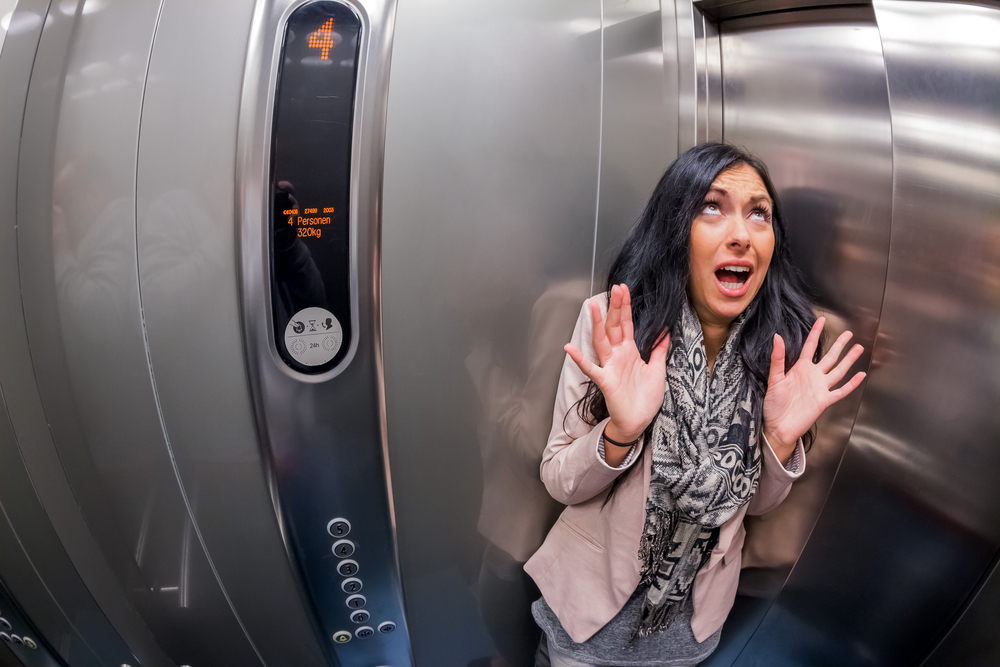Contents:
- Medical Video: 25 Strange Phobias You May Not Know You Have
- First understand how humans can feel scared
- A phobia is excessive fear that doesn't make sense
- What is the difference between ordinary fear and phobias?
- What causes phobias?
- Can phobias be treated?
Medical Video: 25 Strange Phobias You May Not Know You Have
Everyone must have felt scared. For example, fear of being hit by a car when crossing the street, afraid of not graduating from college, or afraid of watching a horror movie. So, what distinguishes ordinary fear and fear caused by phobias?
First understand how humans can feel scared
Humans are afraid because they see, hear, or feel something that makes us feel threatened. The trigger for fear can be something that is truly real (such as a speeding car on the road; knife robber) or something that doesn't actually exist, such as a ghost.
All of this acts as a stimulus that triggers the amygdala, the part of the brain that functions to respond to instinctsfight or flight- against the threat, or just run away! Once the body reads a threat, the brain will order the adrenal gland to release large amounts of adrenaline. This then leads to various kinds of physical and emotional changes - from heart palpitations, wide-eyed eyes, rushed breath, cold sweat, to even loud screams.
Usually, fear only lasts a moment and will subside as soon as the trigger disappears. Unlike phobias.
A phobia is excessive fear that doesn't make sense
A phobia or phobia is a feeling of excessive and unreasonable fear of an object or situation that actually does not cause harm. Unlike fear in general, phobias are usually related to one specific thing.
If you have a phobia, you may realize that your fears don't make sense, but you still can't control those feelings. In fact, just thinking about objects or situations that are feared can make you worry too much.
So, someone who has a phobia will try as hard as possible to do all kinds of ways to avoid triggering fear. For example, someone who has a germs phobia (mysophobia) will avoid physical contact such as shaking hands with someone else or holding the elevator button. They will also do various ways to cleanse the body and the environment around them from bacterial contamination, and keep it clean.
Phobias are psychological conditions that have a detrimental effect, both physically and mentally. Phobias can reduce a person's self-esteem and self-esteem, interfere with relationships with people, and hinder productivity at work or school, which can cause mental health problems such as depression, social isolation, and anxiety disorders.
What is the difference between ordinary fear and phobias?
Ordinary fear and excessive fear triggered by phobias both come from responses fight or flight controlled by the amygdala. But the process of how it works is different.
In ordinary people, the brain will read the trigger for fear as a threat. For example, fear of ghosts because the door of the house suddenly kicked open by itself. All this information will be processed by the brain and forwarded to the hypocampus to find out the suspected cause. Then after scanning the surrounding environment, the hippocampus can determine that the door's break is most likely the result of gusts of wind. The hypocampus then sends a message to the amygdala that there is no danger, and the amygdala will tell the hypothalamus to turn off the responsefight-or-flight. You will be able to return to calm soon.
Another case in people who have phobias. The study by Critchley et al. showed that a part of the brain called the medial prefrontal cortex is involved in fear and phobia stimulation. One study says that the ventromedial prefrontal cortex can affect the way the amygdala works produces fear by evoking terrible memories. When the amygdala associates these stimuli (which are not dangerous at all) with negative memories, the brain creates an extreme avoidance reaction.
In addition, ordinary fear generally does not cause significant physical symptoms. While if someone is confronted directly with a phobia trigger, he or she will usually show physical signs or symptoms as follows:
- Restlessness, nausea, palpitations, chest tightness, cold sweat, shallow breath and fast, dry mouth
- Nervous, trembling, speechless
- Panic attack
- Feeling you will faint (or faint)
- Shivering
- Diarrhea
- Baal (numb)
- Tingling sensation
- Ears buzzing
- Feel confused / dazed or disorientated
That is why, phobias are irrational fears that are characterized by strong reactions to avoid certain objects or situations to prevent the emergence of fear, anxiety, or others.
What causes phobias?
There is no definite cause that can explain why a person can have a phobia. However, there are several factors that can affect the risk of phobias, such as genetic, environmental, and psychological trauma that have been experienced in the past.
For example, when you were a child, you were stuck in an elevator for a long time because the elevator suddenly died. After the incident, you become frightened, anxious and cold sweat while in the elevator, and instead of having to be afraid you will decide to go up the stairs.
Phobias can also occur after a person experiences brain trauma that changes certain structures or chemicals in the brain.
Can phobias be treated?
Phobia treatment is a therapy that includes CBT psychotherapy (to stop anxiety, fear, and at the same time improve mindset), medical drugs (a combination of antidepressants, beta-blockers and anti-anxiety), or a combination of both. In addition, hypnotherapy andNeuro-Linguistic Programming (NLP) can also be used as assisted therapy to control phobia symptoms.












